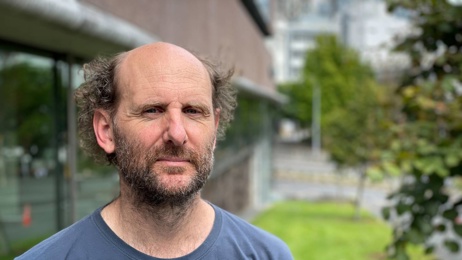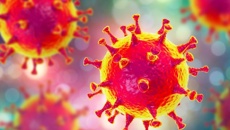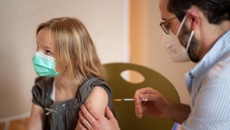
The true number of Covid cases in the community remains a mystery as leading experts warn it could be up to four times higher than what is being reported.
The predictions come as New Zealand yesterday recorded its deadliest day so far during the outbreak, with eight people dying of Covid-related conditions.
Epidemiologist professor Rod Jackson said people either not getting tested or not reporting their rapid antigen test results could make a huge difference to the accuracy of Covid-19 case numbers.
There were 14,494 new cases in the community yesterday - the lowest number in the past two weeks - but the number of people in hospital continues to steadily rise, with 896 people now in hospital. There were 853 people in hospital on Saturday.
But Jackson said it was too early to tell whether New Zealand had reached the peak as Covid cases could fluctuate from day-to-day.
"I would love to believe it's on the decline in Auckland - it's clearly still going up elsewhere. But I just don't think we have any clear idea - we are shooting in the dark because people are not getting tested or if they are getting tested many of them are not reporting."
He told RNZ the most important thing people needed to realise was that only about a quarter or a third of all the cases were being reported.
As Covid cases climb again in both New South Wales and a number of European countries, Jackson warns against lifting too many restrictions too early.
Measures that weren't too restrictive such as wearing masks in public places and encouraging social distancing should remain in place for some time. There also needed to be a "much much harder'" push to get people boosted - especially those aged over 50 as the best protection was ensuring everyone was "vaxxed to the max".
Covid-19 modeller professor Michael Plank told TVNZ's Breakfast that while RAT testing was very useful because it returned a result so quickly, it left a big unknown around how many people were getting tested and how many weren't uploading their results.
The estimate was that only one in three or four cases were getting tested based on what had happened overseas, he said.
'Pretty close to a peak' - modeller
The rest of the country was still lagging behind Auckland, but it remained to be seen if their peaks would be lower than Auckland due to the size of the city.
"More rural areas or areas with smaller towns would be likely to be peaking at a lower level."
It was "pretty clear" that Auckland's cases were trending down and by next week he expected to see peaks in other parts of the country as well.
"Nationally, I think we're probably pretty close to a peak now."
So far New Zealand's modelling of Covid cases, particularly hospitalisation numbers, had been in the "ball park" as models had been predicting 15,000 to 30,000 cases at this stage.
Plank expected the number of hospitalisations to keep rising for another week or so, but warned people could still remain in hospital for months after the initial outbreak.
Once New Zealand reached the peak of the outbreak and hospitalisations were coming down, reopening the border to tourists could be brought forward as the number of Covid cases entering the country would not have much impact compared to cases already here, he said.
Tourists to be allowed in much earlier
Prime Minister Jacinda Ardern told AM she would also be making an announcement around when tourists would be allowed back into New Zealand after a two-year hiatus, saying the dates will be brought forward from the initial October date.
Returning Kiwis from around the world are already allowed back in without having to isolate, and as of the weekend those on working holiday visas were also welcomed back.
Allowing people back in to carry out jobs, for example, in the horticulture sector was all part of getting ready to support tourists coming back in, she said.
Take your Radio, Podcasts and Music with you









